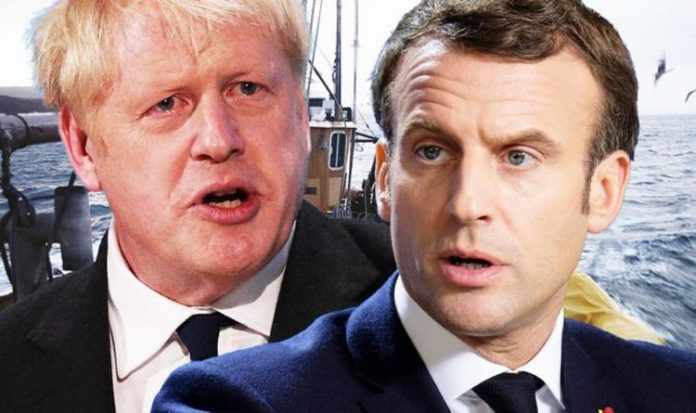The stark warning comes as the EU and the UK fail to make progress in negotiations, making the prospect of no deal all the more likely. But French fishermen, whose livelihoods depend on taking fish from UK waters, refuse to accept that. They are pressuring French President Emmanuel Macron to withhold any trade deal unless Britain lets EU trawlers fish its waters. They even issued threats reminiscent of the fiery scallop wars of 2018, when ships clashed off the coast of France.
One captain based in Boulogne-sur-Mer, France’s most important fishing port, warned “Macron mustn’t give an inch to Britain”.
French Farm Minister Didier Guillaume made a more provocative claim, adding that it would be “very, very grave” if French boats were banned from British waters, and that if this were to happen, there would be “reprisals”.
Current rules allow EU boats to fish as close as six nautical miles to Britain’s coast, but once it leaves the bloc its exclusive economic zone will reach as far as 200 miles offshore.
If no new accord is reached, the French will not be allowed to fish beyond a line down the middle of the English Channel separating French and British territorial waters.
According to Barrie Deas, CEO of the National Federation of Fishermen’s Organisations, who has expressed concerns over possible French blockades, France currently takes 84 percent of the quota for cod in the English Channel while the UK is allowed only nine percent.
France is one of many nations dependent on British fishing grounds.
Between 2012-2016 for example, France caught 120,000 tonnes of fish worth £171million, according to Marine Management Organisation figures.
France President Emmanuel Macron promised he would “fight” for his country’s fishermen during Brexit trade talks.
READ MORE: ‘Naval battle’ warning as EU braces for life without UK waters
Last month, the UK’s negotiator David Frost expressed his concerns.
He said: “The EU is still insisting not only that we must accept continuity with EU state aid and fisheries policy, but also that this must be agreed before any further substantive work can be done in any other area of the negotiation, including on legal texts.
“This makes it unnecessarily difficult to make progress.”
Mr Barnier also said he was “disappointed” with the progress made.
He added that “frankly I am disappointed and I am worried“ and “a little surprised” because Prime Minister Boris Johnson had told EU leaders earlier this summer he wanted a deal by July.
He continued: “Too often this week it felt as if we were going backwards more than forwards.”







